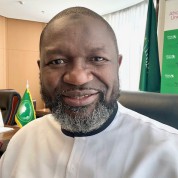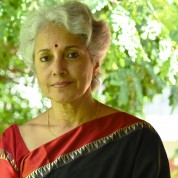PS1.1
Can Geopolitics Help Health Systems and the World Prepare for Future Pandemics?
25
Jan
It is important to understand the ‘state-of-play’ in negotiations on the reform of the International Health Regulations (IHR) and at the pandemic accord International Negotiating Body (INB) in order to assure that health systems and the world are better prepared for future pandemics. Some of the points of contention already identified in the discussions on the IHR include the wish of low- and middle-income countries to have a focus on equity and financing while high-income nations appear more interested in amendments to strengthen obligations on compliance and information sharing. At the INB negotiating table, unenforceable ‘soft law’ preambular nods in the direction of equity abound, with ‘hard law’ language reserved for emphases on security and surveillance. In both instances, there are stark north/south differences in whether there should be benefit-sharing obligations in return for developing country pathogen-sharing. A related matter is the design and establishment of global guidance, regulations, and conventions on the collection, handling, and manipulation of virulent pathogens with pandemic potential. One possible area for further exploration might be the role of scientific advisory committees in these negotiating processes: questions are arising about their transparency, accountability, representativeness, and oversight. How are the geopolitical interests of more powerful nations managed within such advisory bodies?
Regarding health systems designed to provide universal health coverage (UHC), there is the persisting concern that this is a financialized truncation of the broader model of primary health care (PHC). This session would make the case for why we need UHC - a healthy economy is predicated on a healthy population; labor and capital are essential for economic activity. National security and regional stability are, in turn, predicated on healthy economies.
The need for a normative global commitment to universalism in health coverage will be further considered. Multiple factors need to be aligned for UHC to become a reality, including health systems knowledge, medical expertise, economic and fiscal capacity, and technical policy making skills. Universalism and the need to reach individuals who have been previously excluded from health systems are essential to improving everyone's health, both in the context of public health emergencies such as COVID-19, and the growing burden of chronic disease globally.
Determining how pandemic preparedness can be equitably and sustainably financed, and the additional costs met, is a major issue for consideration. This is particularly important given the many competing global health priorities, such as the challenges of antimicrobial resistance and antimicrobial development and stewardship.
There is an ongoing need to support evidence generation and the use of scientific methods so that health policies can be built on best possible foundations. Political science analyses the relationship between the principal (e.g., central government bureaucracy) and its agents (e.g., local programme implementers) by focusing on the vertical power and authority of principals, and the incentives and inducements (e.g., performance evaluation) that can be used to ensure that the agents implement UHC policies. Theory-based frameworks can be used for analyzing the politics of health reform for UHC according to stages in the policy cycle (agenda setting, design, adoption, and implementation) and four variables that affect reform (interests, institutions, ideas, and ideology).
Robust social safety nets, including that provided by UHC, are crucial for both facilitating and enabling broad compliance to public health measures and building trust in governing institutions. Social safety nets ensure, at the most basic level, decent wages to families, access to health care and public health measures, and an income floor to prevent impoverishment. Obstacles to such social safety nets include contending political interests, absence of scientific agreement on effective interventions for certain conditions, and political institutions being unable to adapt to the quickly evolving health needs.
This session will examine the issues and propose actionable recommendations and improvements related to:
- What changes are needed to the International Health Regulations (IHR)?
- What positions are associated with powerful nations. What do the current superpowers want?
- What geopolitical issues undermined IHR-2005 during the COVID-19 pandemic?
- What governance reforms might make a positive difference?
- What is the role of the International Negotiating Body (INB)?
- What powers does INB have?
- How can INB get nations to collaborate?
- How is INB’s authority contested by ‘rival ‘nations?
- How to build universal support and funding for resilient health systems and universal heath coverage (UHC)?
- Donors say they already want this, but they do not cooperate well with one another, despite prior commitments to cooperation. How can cooperation be improved?
- How can more powerful countries be encouraged to promote models that serve the interests of all stakeholders?
- How can the issue of intellectual property rights, often supported by major donors, be addressed better to give wider access to vaccines and drugs etc.
- How will global funding mechanisms support UHC at the same time as other priorities including pandemic preparedness and emerging challenges such as antimicrobial resistance and the handling and manipulation of high-consequence pathogens?
- Who is paying and with what conditions?
- Could there be an accounting of the pandemic bonds?
- What are the national interests that have so far defined this debate?
- What are the global governance implications given the current high level of geopolitical tensions between powerful global players?
- What are the positions of major powers including the US, China, the EU, Russia, and India.
PANELISTS
Biosketch
Ahmed E. Ogwell Ouma
Ebere Okereke
Precious Matsoso
Priya Basu
Richard Hatchett
Soumya Swaminathan







